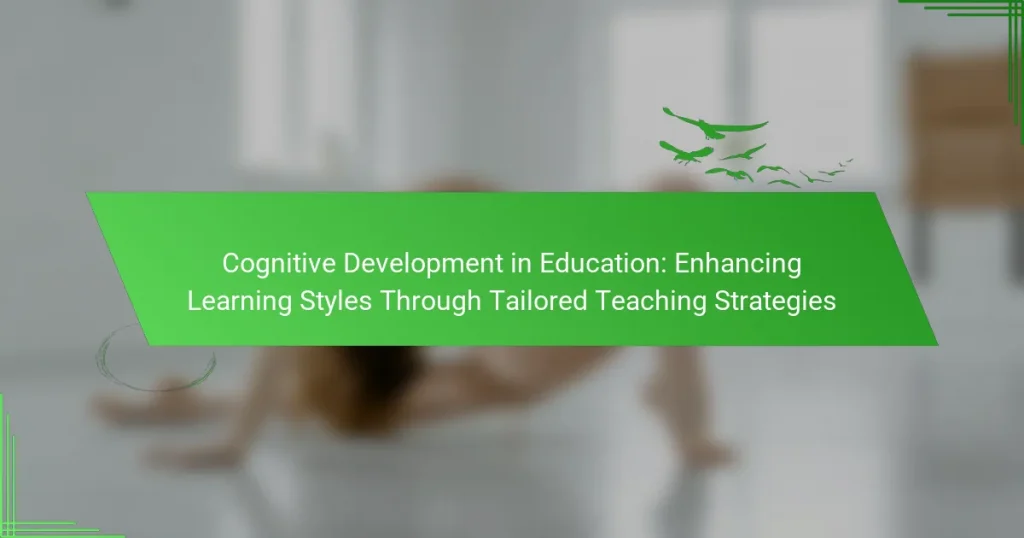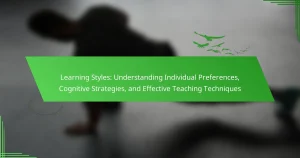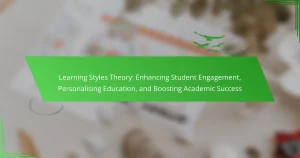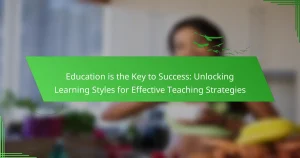Cognitive development in education enhances learning outcomes by adapting teaching strategies to individual learning styles. Tailored approaches, such as differentiated instruction and personalised learning plans, foster engagement and retention. Understanding diverse cognitive preferences, including visual, auditory, and kinesthetic modalities, allows educators to implement effective instructional techniques. Integrating technology further supports personalised learning experiences, creating an inclusive environment that promotes academic success.
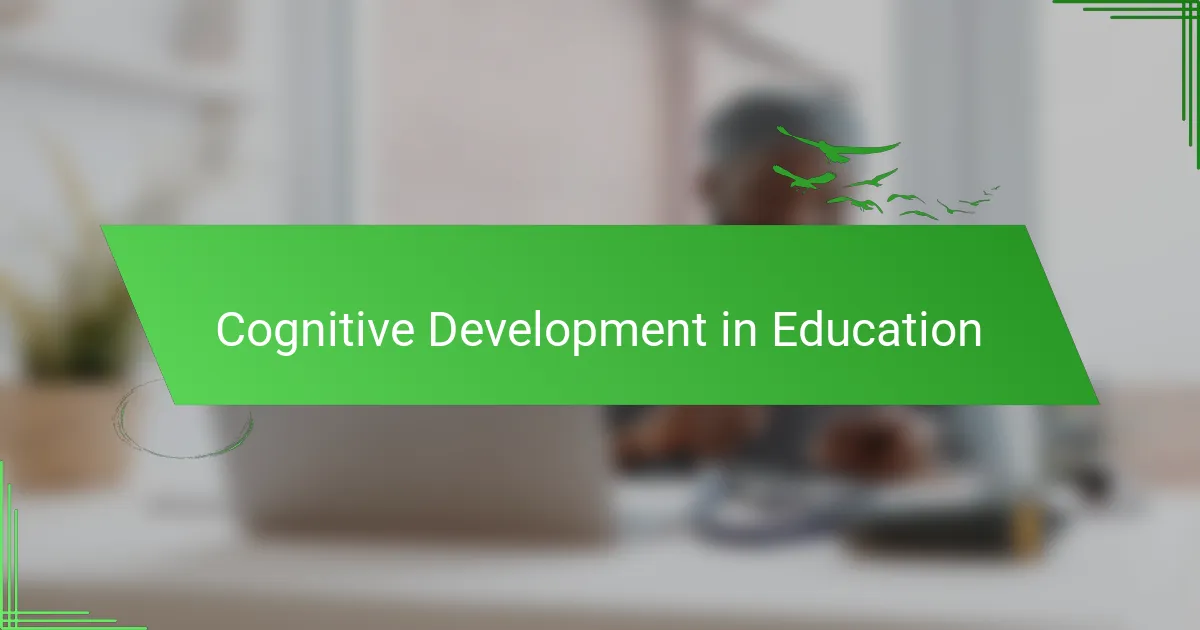
Cognitive Development in Education
Cognitive development in education focuses on enhancing learning styles through tailored teaching strategies. Effective strategies adapt to individual cognitive processes, fostering better engagement and retention. Research shows that personalised approaches can improve academic performance by addressing diverse learning needs. For instance, visual learners benefit from graphic organisers, while auditory learners thrive with discussions. Implementing these strategies leads to a more inclusive educational environment, enabling all students to reach their potential.
What role does cognitive development play in learning styles?
Cognitive development significantly influences learning styles by shaping how individuals process information. Tailored teaching strategies enhance engagement and retention by aligning with students’ cognitive abilities. For instance, younger learners may benefit from hands-on activities, while older students might excel with abstract concepts. Understanding these differences allows educators to implement effective, personalised approaches that foster deeper learning experiences.
How can educators assess cognitive development?
Educators can assess cognitive development through observational assessments, standardised tests, and formative assessments. These methods provide insights into students’ learning styles and cognitive abilities. Observational assessments allow educators to monitor student engagement and problem-solving skills in real-time. Standardised tests measure cognitive skills against established benchmarks, while formative assessments offer ongoing feedback to tailor teaching strategies. This combination enhances personalised learning experiences.

Tailored Teaching Strategies
Tailored teaching strategies enhance cognitive development by accommodating diverse learning styles. These strategies include differentiated instruction, formative assessments, and personalised learning plans. Differentiated instruction allows educators to modify content, process, and products based on students’ needs. Formative assessments provide ongoing feedback, helping to adjust teaching methods effectively. Personalised learning plans cater to individual student goals and interests, promoting engagement and motivation. Implementing these strategies leads to improved academic outcomes and fosters a positive learning environment.
What are the benefits of tailored teaching strategies?
Tailored teaching strategies significantly enhance cognitive development by addressing individual learning styles. These strategies promote engagement, improve retention, and foster critical thinking skills. Personalised approaches cater to diverse needs, enabling students to grasp concepts more effectively. As a result, academic performance and self-confidence increase, leading to a more positive educational experience.
How do tailored strategies enhance learning outcomes?
Tailored strategies significantly enhance learning outcomes by addressing individual learning styles. These strategies adapt teaching methods to fit diverse cognitive processes, promoting engagement and retention. Research indicates that personalised learning can improve academic performance by up to 30%. Moreover, tailored approaches facilitate deeper understanding, as they allow students to connect new information with prior knowledge effectively. This alignment between teaching and learning preferences leads to increased motivation and better overall educational experiences.

Universal Attributes of Learning Styles
Cognitive development in education emphasises the importance of recognising universal attributes of learning styles. Tailored teaching strategies enhance individual learning experiences by aligning with distinct cognitive preferences. These attributes include visual, auditory, and kinesthetic modalities, which influence how learners process information. Understanding these styles allows educators to implement effective instructional techniques, fostering engagement and retention. Research indicates that personalised approaches can improve academic performance and motivation, highlighting the value of adapting teaching methods to meet diverse learning needs.
What are the most common learning styles?
The most common learning styles are visual, auditory, and kinesthetic. Visual learners benefit from diagrams and charts, auditory learners thrive with lectures and discussions, while kinesthetic learners prefer hands-on activities. Tailoring teaching strategies to these styles can enhance cognitive development and engagement in education.
How do learning styles influence cognitive development?
Learning styles significantly influence cognitive development by shaping how individuals process information. Tailored teaching strategies that align with these styles enhance engagement and retention. For instance, visual learners benefit from diagrams, while auditory learners excel with lectures. Research indicates that personalised approaches can improve academic performance by accommodating diverse learning preferences. This adaptability fosters a deeper understanding of material, promoting overall cognitive growth.

Unique Characteristics of Effective Teaching
Effective teaching uniquely fosters cognitive development by adapting to individual learning styles. Tailored strategies enhance engagement and retention. For example, differentiated instruction meets diverse needs, promoting deeper understanding. Research shows that personalised feedback significantly boosts student motivation and performance. This approach aligns teaching methods with students’ unique attributes, optimising educational outcomes.
What unique teaching methods cater to different learning styles?
Tailored teaching strategies enhance cognitive development by addressing diverse learning styles. Unique methods include differentiated instruction, which adapts content to individual needs, and experiential learning, which engages students through hands-on experiences. Visual aids benefit visual learners, while group discussions cater to interpersonal learners. Incorporating technology, such as interactive simulations, can further accommodate various preferences. These strategies improve engagement and retention, fostering a more inclusive educational environment.
How can technology support unique learning preferences?
Technology supports unique learning preferences by offering personalised educational experiences. Adaptive learning platforms adjust content based on individual progress, catering to various cognitive styles. For instance, visual learners benefit from interactive simulations, while auditory learners engage through podcasts. Additionally, gamification enhances motivation, appealing to diverse interests and fostering deeper understanding. Data analytics track performance, enabling tailored feedback and improving cognitive development. Ultimately, technology empowers educators to implement targeted teaching strategies that align with each student’s unique learning preferences.
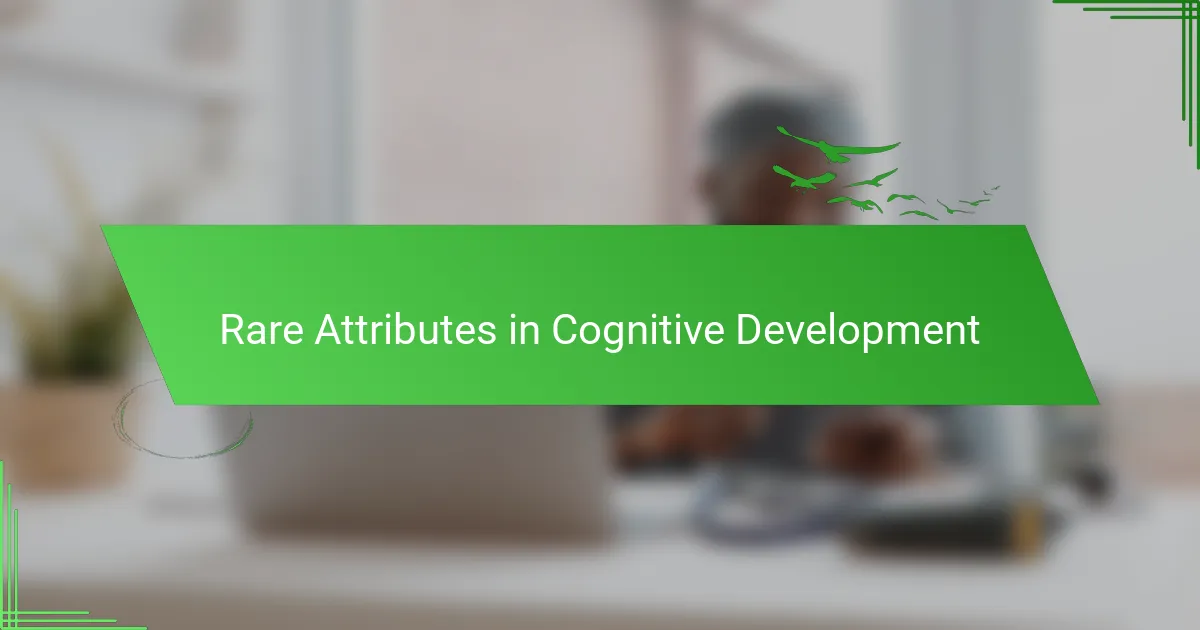
Rare Attributes in Cognitive Development
Cognitive development in education encompasses various rare attributes that can significantly enhance learning. These attributes include neuroplasticity, individualised feedback mechanisms, and emotional intelligence integration. Neuroplasticity allows for adaptable learning environments, fostering resilience in students. Individualised feedback mechanisms provide tailored insights, improving student engagement. Emotional intelligence integration nurtures social skills, enhancing collaboration and communication in educational settings. These rare attributes contribute uniquely to effective cognitive development strategies.
What are the lesser-known factors influencing cognitive growth?
Cognitive growth is influenced by factors such as environment, emotional well-being, and social interactions. These elements shape learning experiences and impact cognitive development. For example, a stimulating environment enhances creativity, while supportive relationships foster resilience. Additionally, emotional regulation contributes to better focus and retention of information.
How can rare teaching strategies be integrated into the curriculum?
Integrating rare teaching strategies into the curriculum enhances cognitive development by addressing diverse learning styles. These strategies, such as experiential learning and inquiry-based approaches, can be woven into lesson plans and activities. For example, teachers can implement project-based learning that fosters critical thinking and collaboration. Additionally, incorporating technology tools like simulations can provide unique learning experiences. Regular assessment of student engagement and understanding will ensure these strategies effectively meet educational goals.
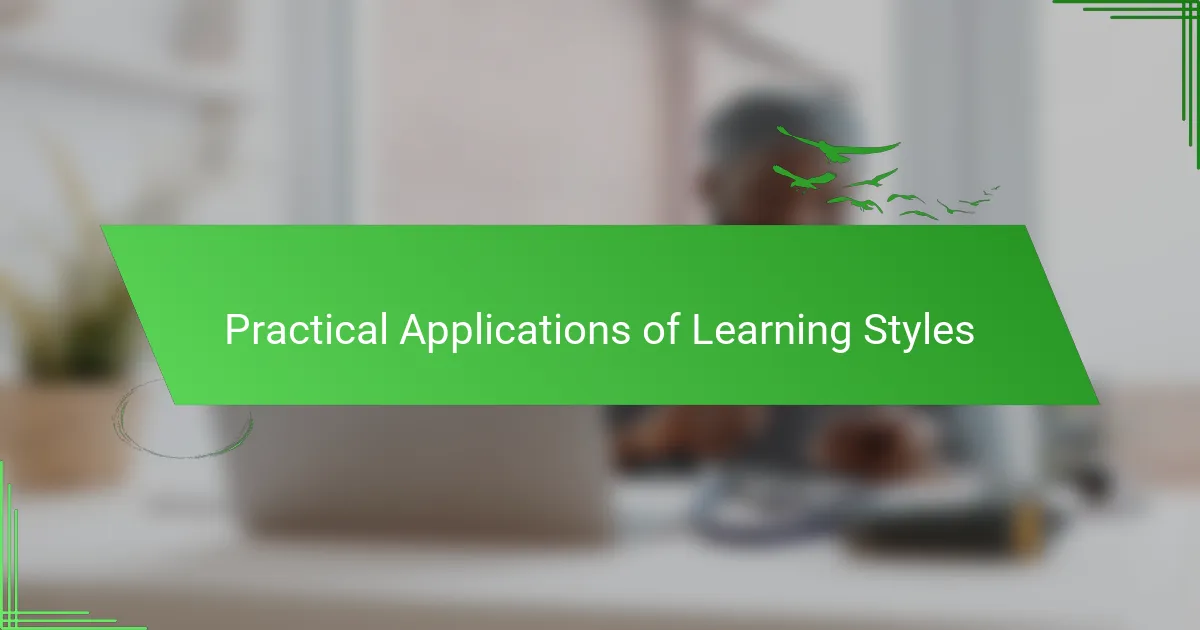
Practical Applications of Learning Styles
Tailored teaching strategies enhance cognitive development by aligning with individual learning styles. Educators can apply various methods, including differentiated instruction, to cater to diverse cognitive preferences.
For instance, visual learners benefit from graphic organisers, while auditory learners thrive through discussions and lectures. Kinesthetic learners engage effectively with hands-on activities. Research indicates that personalised approaches can lead to improved retention and understanding.
Furthermore, integrating technology in the classroom can support various learning styles. Tools like interactive simulations and educational apps offer opportunities for individualised learning experiences.
Ultimately, recognising and adapting to learning styles fosters an inclusive educational environment, promoting better academic outcomes.
What are the best practices for implementing tailored strategies?
Tailored strategies in cognitive development enhance learning by addressing individual needs. Key best practices include assessing learners’ styles, implementing differentiated instruction, fostering a supportive environment, and utilising formative assessments. Regular feedback helps adapt strategies effectively.
What common mistakes should educators avoid?
Educators should avoid common mistakes that hinder cognitive development. Failing to differentiate instruction limits learning potential. Ignoring diverse learning styles can alienate students. Overlooking formative assessments prevents timely feedback. Neglecting a growth mindset stifles motivation. Lastly, underestimating the importance of a supportive environment can affect engagement.
How can ongoing assessment improve tailored teaching effectiveness?
Ongoing assessment enhances tailored teaching effectiveness by providing real-time feedback on student progress. This process allows educators to adjust instructional strategies, ensuring alignment with individual learning styles. Continuous evaluation identifies unique attributes of learners, such as strengths and weaknesses, enabling personalised support. As a result, students engage more deeply, leading to improved cognitive development and retention of knowledge.
What expert insights can guide educators in enhancing learning styles?
Tailored teaching strategies enhance learning styles by addressing individual cognitive needs. Educators can apply differentiated instruction, formative assessments, and collaborative learning to optimise engagement. Research indicates that personalised learning approaches significantly improve student outcomes. For instance, utilising technology for adaptive learning can cater to diverse learning paces and styles, fostering deeper understanding and retention. Additionally, incorporating multiple intelligences theory allows educators to design activities that resonate with various learners, enhancing motivation and participation.
